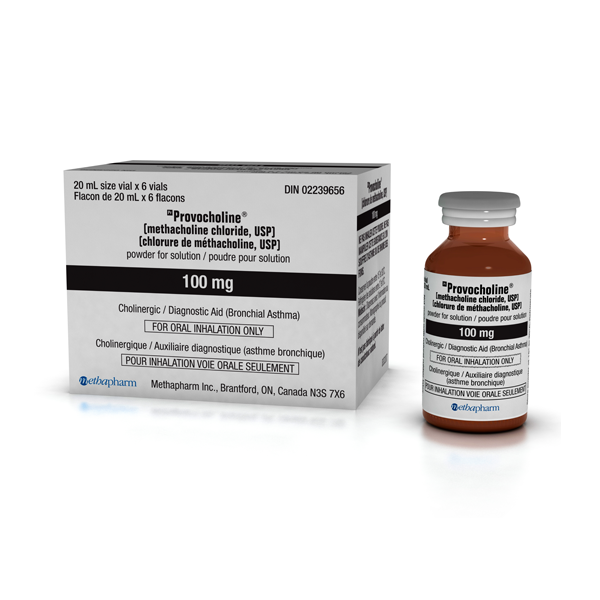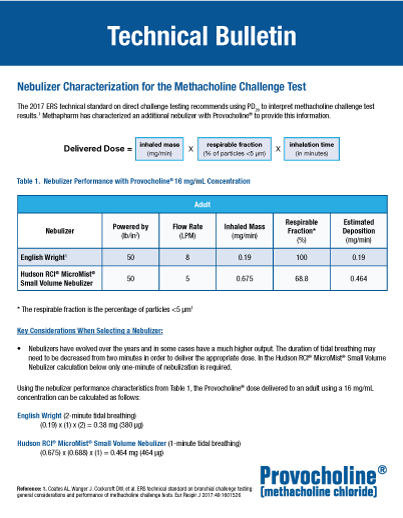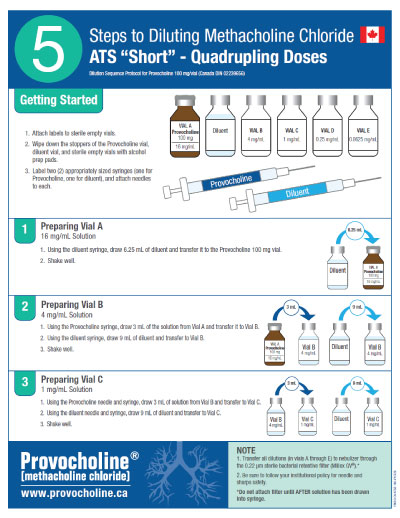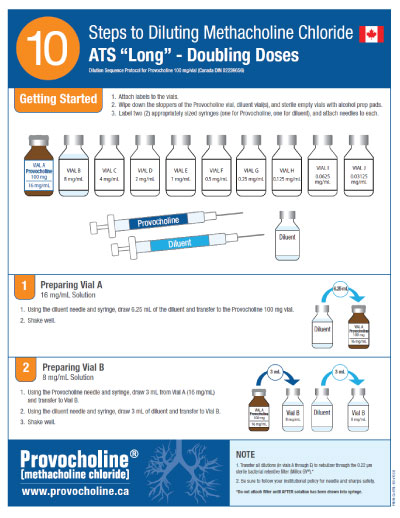
Diagnose Asthma with Confidence
Bronchial challenge testing with Provocholine® is an objective means to help establish a diagnosis of asthma. Provocholine (methacholine chloride) is used in the methacholine challenge test (MCT) to measure airway hyperreactivity, a key clinical feature of respiratory conditions such as asthma.
The methacholine challenge test is widely supported by published clinical practice guidelines; it is performed in adults and children 5 years of age and older when a diagnosis of asthma is suspected and spirometry with pre/post bronchodilator is normal or inconclusive. A negative test result can rule out asthma with a high degree of accuracy, allowing healthcare practitioners to assess alternative diagnoses and avoid unnecessary medications or inappropriate treatments.
INTRODUCING


Assess Airway Hyperreactivity:
When asthma is suspected
To rule out conditions with similar symptoms to asthma
To evaluate occupational asthma

Assess Airway Hyperreactivity:
When asthma is suspected
To rule out conditions with similar symptoms to asthma
To evaluate occupational asthma

Product Information
Mixing Instructions
The mixing videos below are intended for US Healthcare Practioners only and are provided here are a courtesy for educational purposes only. For full prescribing information, please refer to the Canadian Product Monograph.
ATS Short Dilution Video
ATS Long Dilution Video
WARNING: SEVERE BRONCHOCONSTRICTION
Severe bronchoconstriction can result from Provocholine administration (including the lowest dose). The use of Provocholine is contraindicated in pediatric and adult patients with baseline FEV1 <70% predicted or adults with FEV1 <1.5 L. Because of the potential for severe bronchoconstriction, the use of Provocholine in patients with clinically apparent asthma or wheezing is not recommended. Emergency equipment and medication should be immediately available to treat acute respiratory distress. If severe bronchoconstriction occurs, reverse immediately with a rapid-acting inhaled bronchodilator agent (β-agonist). If baseline spirometry is not performed or measured inaccurately, the initial FEV1 may be underestimated. In this situation, decreases in FEV1 may not be detected after administration of escalating Provocholine doses, which may result in administration of unnecessary higher doses and an increased risk for excessive bronchoconstriction [see Warnings and Precautions (7) of the Product Monograph].






